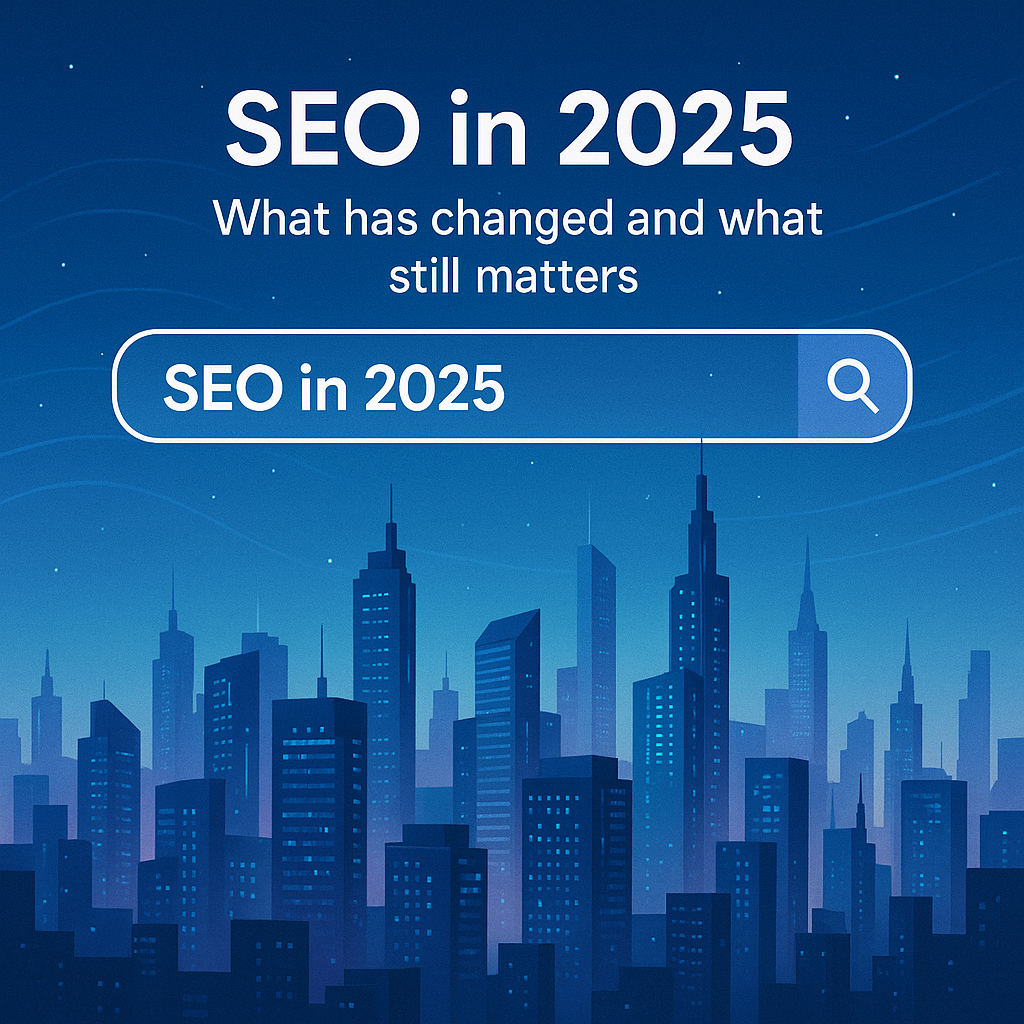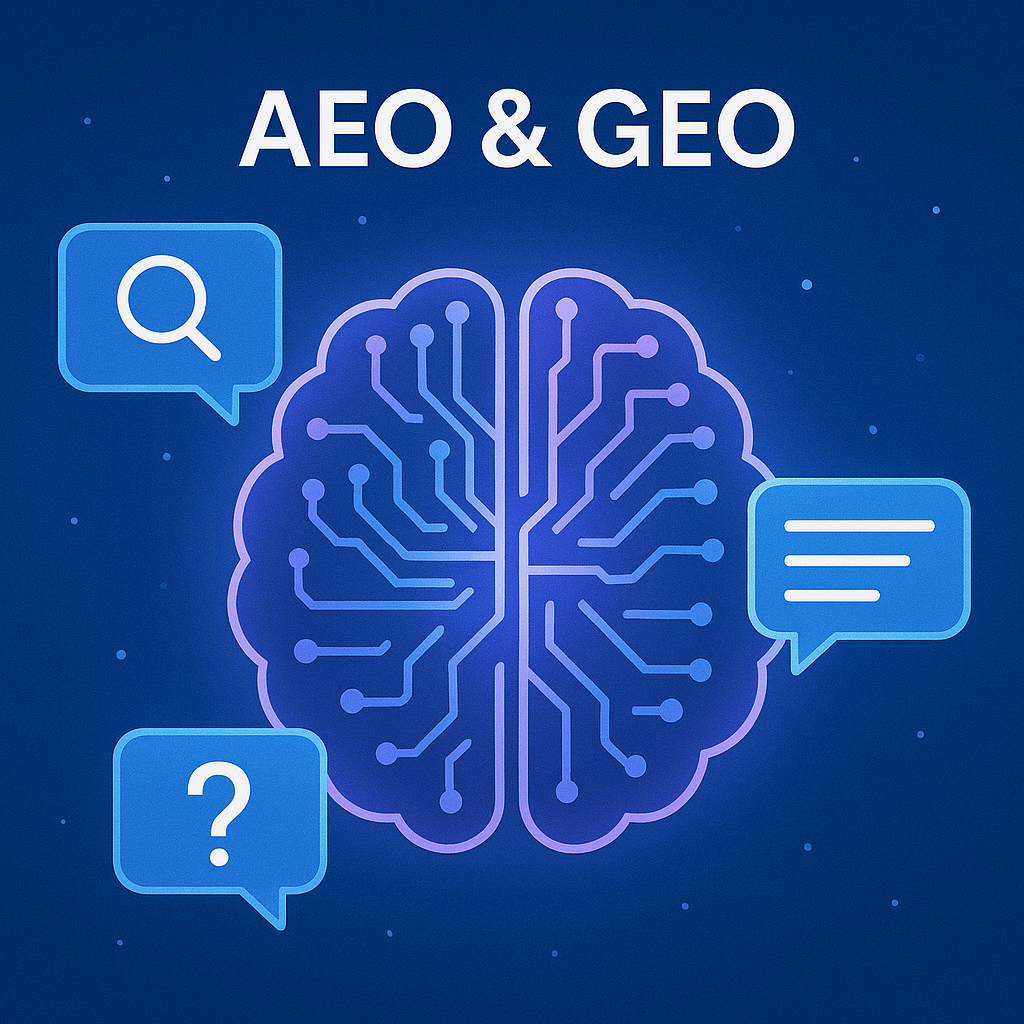Table of Contents
- The Big Shift in Search — AI & Answer Engines
- What Still Matters: Core SEO Pillars
- New Tactics for 2025 & Beyond
- Measuring Success in the New Landscape
- How JSH Helps You Win at SEO in 2025
The Big Shift in Search — AI & Answer Engines
The world of SEO in 2025 is undergoing one of its most fundamental transformations to date. Google introduced its AI Overviews (formerly part of SGE) widely in 2024, and now many users expect instant, summarized answers instead of traditional “10 blue links.”
According to WordStream, AI Overviews appeared in about 7 % of SERPs in mid-2023, but by late 2024 they approached nearly 20 %. This shift intensifies zero-click searches and demands that content be directly usable in AI summarization.
ttps://www.wordstream.com/blog/seo-trends-2025
At the same time, “answer engines” such as ChatGPT, Perplexity, and tools built on LLMs are pulling share. Some sources estimate referral traffic from such sources has grown by 44 % (ChatGPT) and 71 % (Perplexity) over recent periods. These developments mean that in 2025, success in search isn’t just about ranking — it’s also about being *cited* in conversational AI responses.
What Still Matters: Core SEO Pillars
Even with change, many foundational principles of search engine optimization remain critical. If you neglect them, you won’t survive the transition.
- Quality content & E-E-A-T: Expertise, Experience, Authoritativeness, Trust still matter. Google leans more heavily on signals of credible, well-researched content.
- Technical health: Fast page speed, mobile responsiveness, clean site structure, schema markup, canonicalization, and minimal redirect chains all remain essential.
- Backlinks and authority: While link metrics may winnow in importance relative to AI signals, strong, relevant backlinks still amplify trust and visibility.
- User experience & engagement: Low bounce, longer dwell times, good navigation, internal linking — these all reinforce content value.
- Keyword & intent alignment: Researching what users *mean*, and matching content to those intents (informational, commercial, transactional) remains fundamental. According to SeoProfy, 52 % of keywords people search on Google have informational intent.
https://www.seoprofy.com/blog/seo-statistics/
Also, SEO is still high ROI. First Page Sage reports that positive ROI is often reached within 6–12 months, with peak gains typically in year 2 or 3. ([turn0search9](https://firstpagesage.com/reports/seo-roi-statistics-fc/)) And in 2024, many brands still get around one-third of their traffic from organic search. ([turn0search4](https://www.conductor.com/academy/state-of-organic-marketing/))
New Tactics for 2025 & Beyond
To thrive in 2025, your SEO strategy must evolve. Here are the emergent tactics that separate leaders from laggards.
Answer Engine Optimization (AEO) / Generative Engine Optimization (GEO)
AEO is optimizing your content so that AI-powered answer engines (ChatGPT, Gemini, Perplexity) *cite* or *use* your content in their responses. GEO is a broader term for optimizing for generative engine visibility. These paradigms shift focus from pure ranking to *being surfaced in answers*.
https://en.wikipedia.org/wiki/Answer_engine_optimization
Academic work supports this shift: a recent paper (Chen et al. 2025) outlines “Generative Engine Optimization” to influence how LLM systems retrieve and present content.
https://arxiv.org/abs/2509.08919
Content structuring for AI readability
Because AI systems synthesize from multiple sources, how you *format* content matters more than ever. Use clear headings, lists, FAQ snippets, schema markup, and explicit statements (“Steps to…”). You essentially want to make it “scannable by machines.”
Topic clusters & semantically related content
Rather than optimizing isolated pages around exact keywords, SEO in 2025 rewards content clusters that deeply cover a topic and interlink thoughtfully. AI models value context, depth, and coherence.
Freshness & real-world data
AI engines prefer up-to-date content. Adding updated stats, recent case studies, or user-generated content helps. Also, local signals and real data (e.g. review scores, business data) are strong differentiators.
Hybrid traffic strategies
Don’t rely purely on one channel. Combine SEO, paid search, social, and email to hedge fluctuations in traffic. Observe where AI referrals are trending and shift accordingly.
Measuring Success in the New Landscape
Old metrics like rank position or total sessions still matter — but they need supplements in 2025. Here are metrics you should add:
- AI citations / appearances: Track how often your content is referenced in AI outputs or answer engines.
- Click-through rate (CTR) from AI / SERP snippets (if the AI response includes a link).
- Engagement metrics on referred traffic (dwell time, pages per session) — traffic from AI or summarized results may be more qualified.
- Conversions / lead attribution — ultimately, SEO is about revenue.
- Brand visibility / search share — check your share of voice compared to competitors.
How JSH Helps You Win at SEO in 2025
At JSH Web Designs (aka JSH), we’re not just keeping up — we’re anticipating. Here’s what we bring to your 2025 SEO strategy:
- Audit and migrate your existing content toward AI-readable structures (FAQ, schema, clear context)
- Optimize core content around topic clusters and semantic relevance
- Pursue AEO / GEO strategies so your content can surface in AI responses
- Strengthen authority with high-quality backlinks and topical authority
- Provide analytics dashboards tracking new metrics (AI citations, hybrid referrals, conversion paths)
- Integrate SEO tightly with web design, performance, UX, and marketing strategy
SEO in 2025 is not the same game as SEO in 2015 — but the foundational pillars still support the new rules. Let JSH help you adapt, stay visible, and win in a world where AI plays a starring role.
Contact us at JSH and let’s project your SEO forward.
Author
-

Founder of JSH Web Designs, a website design firm and digital marketing agency in Knoxville. Overseeing day-to-day operations with a focus on website development and marketing to ensure our clients have the tools necessary to succeed in their vertical with data/result-driven strategies and technologies.



